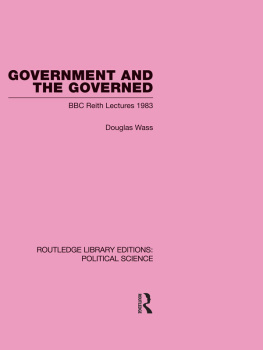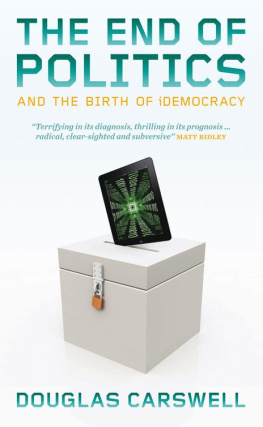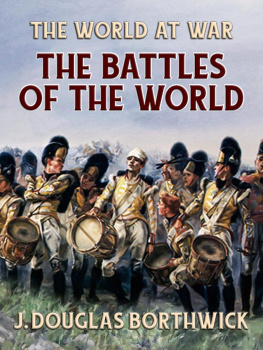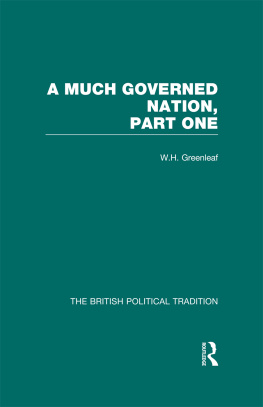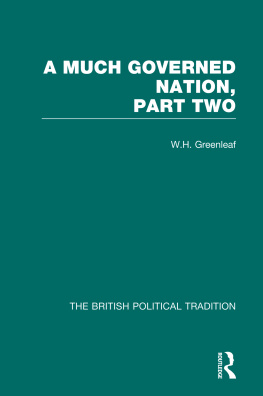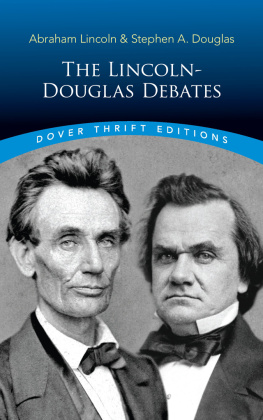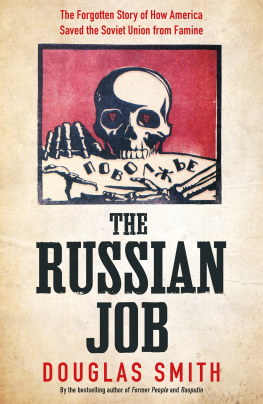First published in book form 1984
This edition first published in 2010
by Routledge
2 Park Square, Milton Park, Abingdon, Oxon, OX14 4RN
Simultaneously published in the USA and Canada
by Routledge
270 Madison Avenue, New York, NY 10016
Routledge is an imprint of the Taylor & Francis Group, an informa business
1983, 1984 Douglas Wass
All rights reserved. No part of this book may be reprinted or reproduced or utilised in any form or by any electronic, mechanical, or other means, now known or hereafter invented, including photocopying and recording, or in any information storage or retrieval system, without permission in writing from the publishers.
British Library Cataloguing in Publication Data
A catalogue record for this book is available from the British Library
ISBN 10: 0-415-49111-8 (Set)
ISBN 13: 978-0-415-49111-2 (Set)
ISBN 10: 0-415-55544-2 (Volume 13)
ISBN 13: 978-0-415-55544-9 (Volume 13)
Publishers Note
The publisher has gone to great lengths to ensure the quality of this reprint but points out that some imperfections in the original copies may be apparent.
Disclaimer
The publisher has made every effort to trace copyright holders and would welcome correspondence from those they have been unable to trace.
DOUGLAS WASS
GOVERNMENT AND THE GOVERNED
BBC REITH LECTURES1983
First published in book form in 1984
by Routledge & Kegan Paul plc
39 Store Street, London WC1E 7DD, England
9 Park Street, Boston,Mass. 02108, USA
464 St Kilda Road, Melbourne,
Victoria 3004, Australia and
Broadway House, Newtown Road,
Henley-on-Thames, Oxon RG9 1EN, England
Douglas Wass 1983, 1984
No part of this book may be reproduced in any form without permission from the publisher, except for the quotation of brief passages in criticism
Library of Congress Cataloging in Publication Data
Wass, Douglas, Sir, 1923-
Government and the governed.
(BBC Reith lectures; 1983)
1. Great BritainPolitics and government1979
Addresses, essays, lectures. 2. Political participationGreat BritainAddresses, essays, lectures. I. Title.
II. Series: B.B.C. Reith lectures; 1983.
JN231.W34 1984354.4183-26877
British Library CIP data available
ISBN 0-7102-0312-8
ISBN 0-7102-0316-0 (pbk.)
Preface
T his book consists of the texts I used in delivering the Reith Lectures which were transmitted by the BBC in the United Kingdom and abroad in the winter of 19834. The language used and the style assumed were what I judged the medium of radio to require from someone seeking to engage the interest of a wide audience in a serious subject of public concern. Neither the language nor the style would have been the same had I been composing my thoughts for the written, not the spoken word. Nor would the length of the texts have been identical. I was constrained to thirty minutes of speech for each of the six lectures.
Other authors of the Reith Lectures have judged that the differences between the medium of speech and that of writing, and the time constraints of radio demanded that they rewrite the lectures for book publication. I was myself initially tempted to do this. But I decided that, having cast my lectures very deliberately in a form for radio transmission, it was worth preserving them in precisely that form.
I received much helpful advice and criticism from half a dozen or so people who saw the lectures in draft at one stage or another. I will not embarrass them by naming them; but they will recognise in these few words my sense of obligation to them for the trouble they took to help me.
One person who helped me cannot, however, remain anonymous. This is the producer of the lectures, Mr David Morton of the BBC. His assistance to me in turning a raw and barely serviceable script into something that could actually be disseminated to a mass audience was beyond price; and his patience and perseverance in educating me in the use of the microphone seem in retrospect to have had no limits. If the lectures have had any wide appeal, much of the credit must go to him. Their imperfections however are uniquely my own.
Douglas Wass
December 1983
Lecture 1
United Thoughts and Counsels
T en days after I accepted the invitation of the Governors of the BBC to give this years Reith Lectures, I found myself almost by chance in the Palazzo Pubblico in Siena, admiring two well- preserved frescoes painted by Ambrogio Lorenzetti. In one, the very depiction of misery and punitive chastisement, the people who inhabit the painting cringe in fear, bedraggled and impoverished. The title Bad Government. In the other, entitled Good Government, we see prosperity, blue skies, fields rich with crops, the citizens going about their business in the epitome of Arcadian contentment. Why, I asked myself, did Lorenzetti entitle these murals as he did, and not, for instance, Poverty and Prosperity? What is it about good government that he equated with well-being? It may seem strange that the permanent secretary to the Treasury, as I then was, should be putting this question to himself, for the identity of good government and prosperity has been taken for granted for a long time. Herodotus tells us how Lycurgus, following an inspired visit to the Oracle at Delphi, in the seventh or eighth century BC, brought good government to Sparta, reorganised the army, and introduced the new civil offices of Ephor and Elder. Thereafter the Lacedaemonians, as he put it, soon shot up and flourished like a sturdy tree.
In our own times, too, many of us have come to link the government with our material prosperity. General elections are fought on what is described as the governments economic performance. And our disappointing post-war achievements compared with some of our neighbours are laid by some people at the very door of government.
Are we right, I wonder, and is history right to equate good government with prosperity and bad government with poverty? And when we talk about government what do we mean? Are we referring to the system, to the component parts of the political and administrative machinery? Or do we mean the policies which governments try to follow? Many of the attributes of a good system of government have been recognised for centuries. The provision of a clear legal code with an accessible judicial system; an executive free from corruption backed up by an efficient civil and military service; perhaps a consultative or legislative assembly.
You will notice that good government, so construed, does not necessarily involve popular participation. There is nothing in Lorenzettis paintings to suggest that the ordinary citizens in fourteenth-century Italy had any voice in the making of the laws or in the design of the foreign policy of the prince who ruled over them. Perhaps the thought never occurred to them that good government had anything to do with democracy. The Athenians however would not have accepted this disjunction. And nor will we. For us, as for them, the essence of good government is that it should be democratic.



